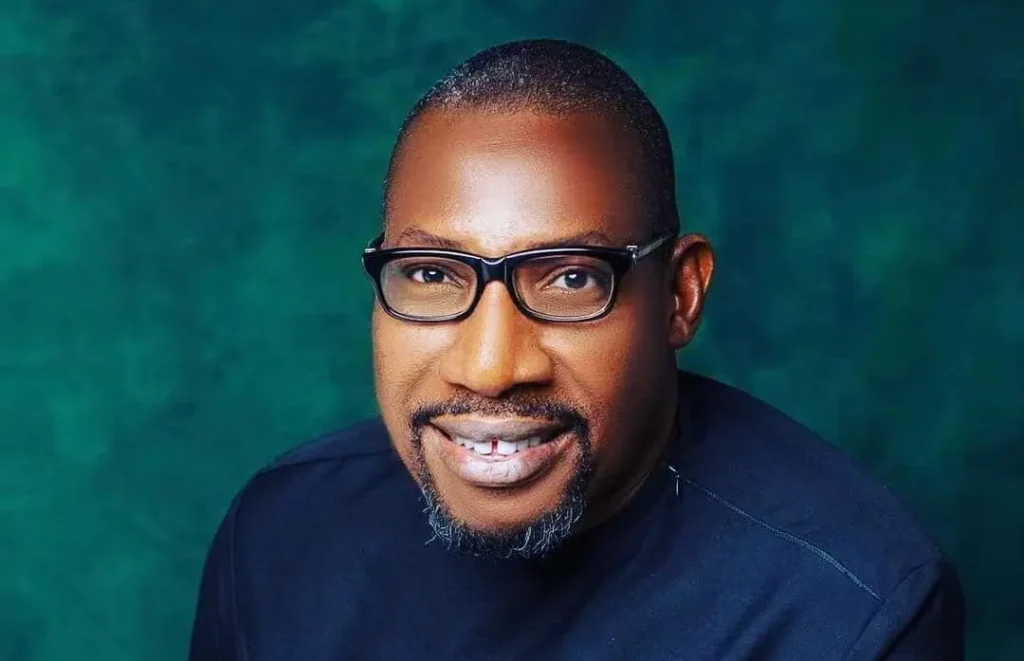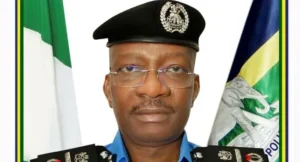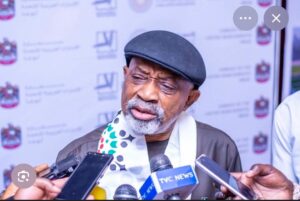
Police paid us N500 daily allowance to fight Boko Haram – Retired Officer
A retired Nigerian police officer, Francis Erhabor, has said that he and his colleagues deployed to fight Boko Haram were paid “a meagre daily allowance of N500” by the police authorities.
Even at that, the N500 was only paid later, apparently after their over three-month deployment to Kano State, North-west Nigeria, in January 2012, Mr Erhabor said in a Facebook post on 23 June.
The money was meant for the officers’ daily needs, including their food.
“For over three months during the operation, I endured harsh conditions, risked my life daily, and operated under extreme uncertainty—all for a meagre daily allowance of N500 (five hundred naira only) that was later paid,” said Mr Erhabor, who retired as a deputy commissioner of police on 2 April this year.
The retired officer, who is now a pastor with Insight Bible Church in Uyo, Akwa Ibom State, said he and his colleagues were hurriedly deployed to Kano, and that they were lodged in a brothel in the Sabongari area of the state because there was no provision for their accommodation.
“It was a time of unrest and bloodshed in Kano State following an attack by Boko Haram on key police formations, including the Police Command Headquarters, Police Barracks, and Prisons headquarters on Bompai Road.
“I was with the Police Mobile Force No. 26 Squadron in Uyo, Akwa Ibom State, when I received a directive via phone from CP Lema Haruna (pseudonym): ‘Lead a team to Kano immediately’.
“Recognising this was a national assignment, I submitted a basic request for logistical support to facilitate the mission. The response I received was, ‘Are you a stranger in this job?’ This response implied that I would have to manage on my own,” Mr Erhabor said, while narrating his experience, which he said “stood out” among others, in his 35 years of service in the Nigeria Police Force.
“There were no transportation arrangements for the assignment, no allowances for officers upon arrival for the operation, and no accommodation provided. We were expected to move into a volatile crisis zone with nothing but our commitment to duty,” he said.
The over 10 years of Boko Haram insurgency in northern Nigeria have left hundreds of thousands of people dead, including soldiers, other security operatives and civilians.
President Bola Tinubu’s administration appears to have recorded some remarkable successes in the fight against Boko Haram and other terrorist groups, with the recent capture of two of the most wanted leaders of the Al-Qaeda-linked Ansaru group, Mahmud Muhammad Usman, popularly known as Abu Bara’a, and Mahmud al-Nigeri, also called Mallam Mamuda.
Nigerians view the police as the most corrupt public institution in the country, according to the findings of a public survey released in 2019 by the Socio-Economic Rights and Accountability Project.
Many believe that poor pay and a lack of basic welfare for police personnel are responsible for the endemic corruption in the nation’s police.
Retired police officers recently protested against Nigeria’s pension system, saying that they have been impoverished by it despite decades of service to the country.
“We all feel concerned. We empathise with you because we are also going to retire,” the Inspector-General of Police, Kayode Egbetokun, said when he spoke to the protesting retired officers. “I have been engaging at the highest level to ensure that something is done to improve the condition of the poor pensioner.”
Mr Erhabor said despite the poor treatment in Kano, he and his men upheld their oath to serve Nigeria.
“Thankfully, I received support from some churches in Kano and friends, which helped me survive during that difficult time.
“My integrity was challenged. That mission, rooted in patriotism and discipline, taught me resilience. It reminded me that true service is not about comfort but commitment.”
Mr Erhabor said he intends to stir a discourse and raise citizens’ consciousness and commitment to service with the Facebook post and other similar posts on the social media platform.
“Patriotism is not defined by what you chant, wear, or wave, but by what you sacrifice. Nigeria needs less noise and more sacrifice from everyone in a position of authority,” he said on Facebook. “Show your commitment, patriotism, and love through your actions.”
In another Facebook post, Mr Erhabor wrote about how he was appointed to head a security team to protect oil pipelines in Edo State in 2007, and how he resisted the pressure to collect a bribe from people who wanted to steal the nation’s crude oil.
“The moment I assumed duty, I was approached with an offer that could have changed my financial life forever: N6 million weekly in illicit ‘returns’ from pipeline vandals. N500,000 weekly returns from my subordinates as returns sourced from other illegal activities. N288 million annually, totalling N864 million over the three years I served as the Commander Pipeline.
“All I had to do was look the other way. The choice was mine: I could live a life of luxury and wealth, or I could remain true to my values. It was not an easy decision, especially since I had less than N1,000 to my name and had always prayed to God to free me from poverty.
“Many questions flooded my mind: Should I follow the trend or stand my ground? Would I be risking my life or the lives of my family by making the wrong choice? Suddenly, I recalled the words of Solomon in Ecclesiastes 10:8: ‘Whoever breaks a hedge, the serpent shall bite him.’ I realised that once I crossed that line, there would be no turning back. So, I decided to refuse the money.”
Mr Erhabor said he cracked down on vandals, destroyed barges used for crude oil theft, arrested and prosecuted oil thieves, and significantly reduced pipeline vandalism in his jurisdiction.
But that came with a price: “Mockery from colleagues. Being labelled a ‘mumu’ (fool) for rejecting wealth. Isolation from those who benefited from corruption,” the retired officer said. He said he remained unshaken.
Many Nigerians who have come across Mr Erhabor have attested to his clean record and anti-corruption lifestyle, which has won him several awards, including the icon of integrity award in 2020 in Abuja.
When Mr Erhabor was the divisional police officer (DPO) at Itam in Akwa Ibom, he stopped the officers under him from engaging in bribery and extortion, and restored the community’s confidence in the police.
A Facebook user, Glad Monty, who commented on Mr Erhabor’s post, said the then-DPO was nicknamed “Obong Akpaniko (the “chief of truth”) by the community elders and youths.
“I can remember when my neighbour was arrested unlawfully, you listened to the story and said he should be released to go free of charge. When you left, the IPO (investigating police officer) said, I’m not the DPO, I will collect money.
“God will continue to bless and protect you, sir,” another Facebook user, Princewill Nya, commented on Mr Erhabor’s post.
Source: Premium Times
- President Tinubu Concludes Strategic Visit to Brazil, Departs for Abuja
- Randy Equatorial Guinea’s Ex-Financial Crimes Chief, Baltasar Sentenced For Eight Years
- Equatorial Guinea President’s Son Convicted For Selling National Airline Plane
Share your story or advertise with us: Whatsapp: +2348033202396 Email: sentinelnewsng@gmail.com








